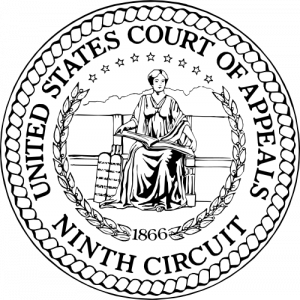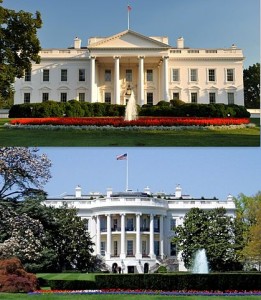Conversely, you could say that the Chamber of Commerce and ACLU have lost, and lost big-time. Overall, it was a very good day for the Supreme Court of the United States, or as law nerds like to call it, SCOTUS. However, it was an even better day for Arizonans, and for those of us who sympathize with their struggle to combat illegal immigration almost single-handedly. Not only did the Supreme Court majority reject the specious arguments advanced by those who want to retain a class of indentured servants from foreign countries in perpetuity, it affirmed the right of state legislatures to employ one of the most effective immigration enforcement tools in their arsenal.
As Dan Stein of the Federation for Immigration Reform points out in his organization’s press release, this Supreme Court decision deals a decisive blow to the flimsy attempts by open borders lobbyists to knock down statewide immigration enforcement statutes based upon the preemption doctrine. In an illuminating post over at The Volokh Conspiracy, the rationale for rejection based upon implied preemption is fully explained with a carefully excerpted portion of Chief Justice John Roberts’s majority opinion.
The opponents of this law made a variety of claims, echoed in the dissents by Justice Breyer and Justice Sotomayor, but the case was ultimately won on the argument that the 2007 bill enacted by the Arizona legislature and signed into law by then-governor Janet Napolitano was a licensing law, and that licensing laws fall under the purview of the states. The notion that the law mandating the use of E-Verify ran afoul of implied preemption is ridiculous on its face, as the majority opinion pointed out.
This law simply required Arizona businesses to implement a method of screening out illegal workers that the federal government has encouraged them to adopt for years, and which is clearly outlined on the Department of Homeland Security’s own website! The corollary argument that the federal government did not intend individual states to enforce the laws it enacted is even more devious when you stop to consider the consequences of this chain of reasoning. So the federal government passed immigration enforcement provisions that it clearly did not intend to see enforced, yet is compelled to punish those states that take Congress at its word? This is the sort of Catch-22 that has caused border states like California and Arizona to be overrun by illegal aliens and beset with the subsidiary problems caused by their presence, e.g. crime, fraud, overpopulation, depleted resources, etc…
The idea that implementation of this law would have led to discrimination against Hispanic workers is even more ridiculous than the tissue paper thin constitutional arguments used by opponents of immigration enforcement. When did it become unreasonable to ask prospective employees to provide a legitimate, legal Social Security number to a potential employer? Of course, the reasonableness of this decision, as well as the Arizona law it affirms, hasn’t prevented the journalistic mouthpieces for America’s #1 sanctuary city from critiquing the alleged flaws in e-Verify while simultaneously calling once again for Congress to enact amnesty. This, despite the fact that E-Verify’s reliability has already been demonstrated, it is becoming a standard business practice, and is being improved month by month, and has never been substantively criticized by someone who does not have a vested interest in keeping the spigot open, e.g. the ACLU, open borders rags like the L.A. Times, pandering politicians, among other opponents of real immigration enforcement.
Whether or not this decision augers well for SB 1070-which is expected to head to the Supreme Court for review regardless of how the 9th Circuit Court of Appeals rules-can’t be answered at this point. I tend to agree with the opinion of Marcia Coyle, a legal analyst for PBS News Hour, who believes that this decision will have little practical impact upon United States of America v. Arizona when it inevitably reaches the Supreme Court’s docket. That said, I think I speak for many when I state that had SCOTUS ruled in favor of the Chamber of Commerce and other open borders advocates in their decision, I would have been greatly discouraged.
This legal victory is a huge win for patriotic Americans everywhere. It is not only a gigantic setback for the Obama administration and its allies in the open borders lobby, it serves as a greenlight for other states-such as Colorado-that have been hesitant to implement E-Verify up to this point. Regardless of what this decision portends for SB 1070′s future, it should be celebrated by Americans today and serve as inspiration for the battles ahead.








Recent Comments